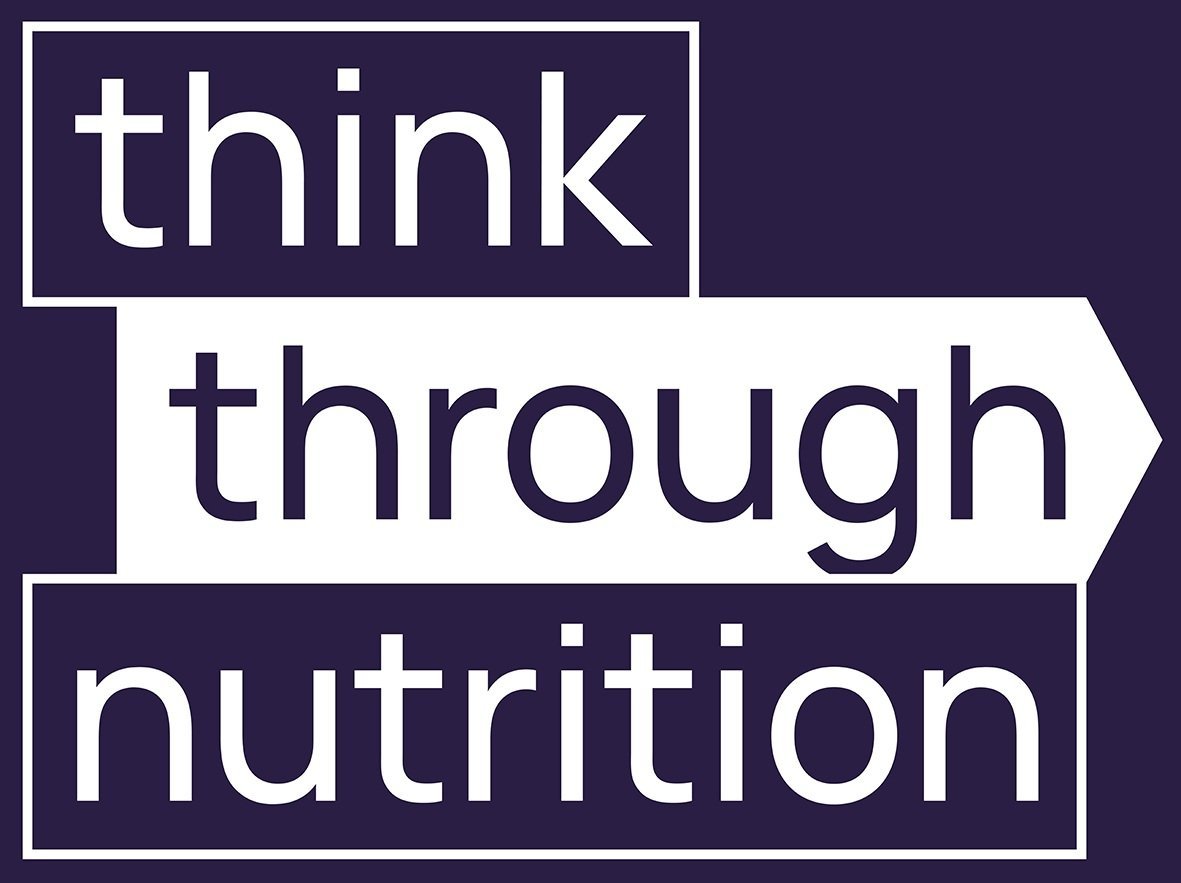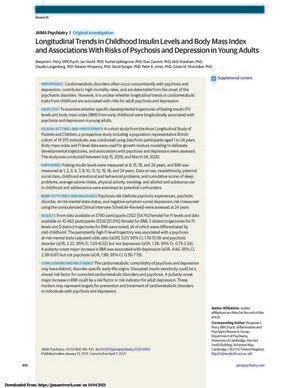Longitudinal Trends in Childhood Insulin Levels and Body Mass Index and Associations with Risks of Psychosis and Depression in Young Adults
Publication date
13 January 2021
Authors
Benjamin I. Perry, MRCPsych
Jan Stochl, PhD
Rachel Upthegrove, PhD
Stan Zammit, PhD
Nick Wareham, PhD
Claudia Langenberg, PhD
Eleanor Winpenny, PhD
David Dunger, PhD
Peter B. Jones, PhD
Golam M. Khandaker, PhD
The Publication
Cardiometabolic disorders often coexist with depression and mental health disorders. Historically, this has been linked to lifestyle factors such as inactivity. However, more recent work indicated that glucose homeostasis plays a role, suggesting a bi-directional association between depression and cardiovascular disease. This relationship could indicate that cardiometabolic and mental health conditions share pathophysiological mechanisms.
This longitudinal cohort study examined whether developmental trajectories of fasting insulin and BMI from childhood were associated with later mental health issues in young adults. Psychosis and psychosis risk were assessed after 24 years. Persistently high fasting insulin levels from 9 years old were positively associated with psychosis at age 24. Additionally, the onset of puberty and associated increases in BMI were associated with depression.
Therefore, increased glucose and insulin levels and associated adiposity in childhood are associated with mental ill health later in life. This emphasises the importance of a preventative approach, starting in early childhood.
Our Response
Understanding the importance of nutrition from the earliest part of life is clearly crucial in ensuring good physical and mental health over many years. Educating families and young people about the importance of good nutrition is essential to ensure that the dramatic increase in the rate of mental ill health is addressed, and hopefully reversed for many.

